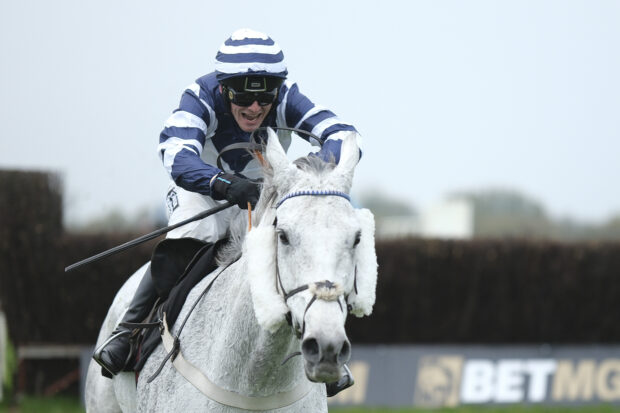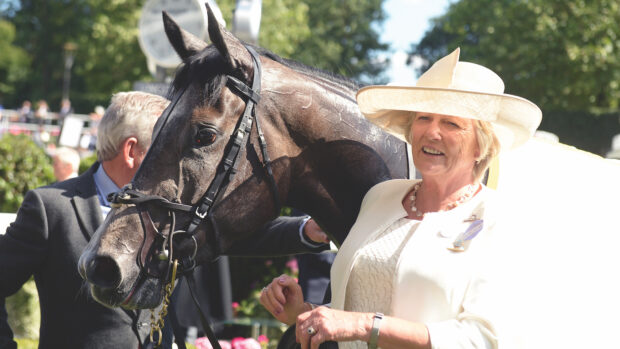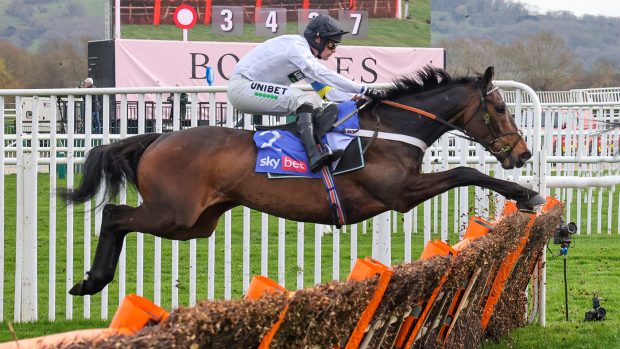The welfare impact of remounting came under the spotlight after a horse suffered a fracture to his hind leg earlier this week.
Novice chaser Kauto Star fell while running at Exeter on Monday but jockey Ruby Walsh remounted and rode him to second place in a nail-biting finish. However, an x-ray later revealed that Kauto Star had suffered a small fracture to his near-hind leg which will keep him out for the rest of the season. This prompted the RSPCA to renew calls for a ban on remounting.
“This is not a knee-jerk reaction to [what happened to] Kauto Star. We were already concerned about it and — to be fair – so was racing,” says the RSPCA’s equine advisor, David Muir. “I am not suggesting for a minute Ruby Walsh did anything wrong. He worked within the rules of racing and the horse appeared well. [But] a jockey and a horse will be extremely high in the middle of the race and a horse would probably carry on [after a fall]. The issue is, why take a chance for something that happens three or four times a year? We need to marry welfare with the ethos of racing.”
No rule forbids remounting at the moment, although a jockey can be found guilty of improper riding if he continues riding a horse which is lame or exhausted. When the RSPCA first called for a ban, the Jockey Club felt the existing rule was “sufficient to police the situation,” according to spokesman John Maxse.
However, it can be hard for a jockey to assess how injured his mount is in the heat of the moment. “It’s a split second decision and when you have got a line in sight is hard to tell,” says Cher Hallett, of Manor Farm Stables, the racing yard belonging to Kauto Star’s trainer, Paul Nicholls.
Hallett explains that Nicholls fully supports Walsh’s decision to remount, which had to be taken quickly and under pressure. “The horse looked fine and [Ruby Walsh] had one fence to go.”
However, she says Nicholls would like to have clearer guidelines on the issue. “Paul has outlined that the fact that it is a grey area. When there’s a grey area, there are always going to be problems. Paul is all for a rule. [He] would support a ban if one was introduced.”
Like Nicholls, a number of racing personalities have backed the RSPCA’s call. Training legend David Nicholson wrote in a letter to the Racing Post’s editor that his jockeys “were instructed not to remount after a fall and indeed, if they fell and managed to catch their mount, to lead it back.
“Maybe this was a bit over the top, but I would challenge anyone to detect a possible internal injury as invariably a horse in the `heat of the chase’ will not show any discomfort until later, when something more serious may be identified.”
Nicholson, however, says that exceptions could be made “if there are no further obstacles to be negotiated and all that is needed is a gentle lob to the winning post.”
And exceptions are precisely what prevented the Jockey Club to introduce a ban on remounting until now. “There are two or three situations in which a horse may be remounted,” says Maxse. “The horse may have fallen, the rider may have become unseated or there may have been a change of direction. And there are a number of circumstances for remounting. Quite often, horses are simply asked to complete a course. We are concerned about a black and white rule with no flexibility to cope with these circumstances.”
However, Maxse says, “the RSPCA’s concerns are absolutely legitimate. We agree there is scope for clarification to avoid a horse being injured.”
Muir explains that the RSPCA is only “talking about a horse that actually falls, i.e. touches his shoulders to the ground, and parts company with the rider.” And he understands the Jockey Club’s need for flexibility. “There are logistical problems and other problems I haven’t seen and the Jockey Club will, but I am sure there’s a way round this. Racing is usually very proactive, [although] this particular issue comes off the track. I’m sure we’ll find a solution that is workable. Racing is big enough and strong enough to deal with this issue.”
Remounting is likely to be discussed at the next meeting of Jockey Club, the ILPH and the RSPCA, which is scheduled for the end of the month.



